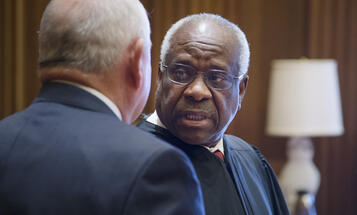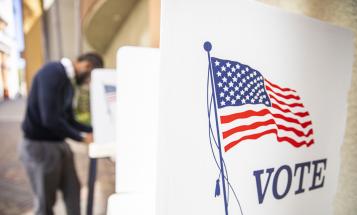
Tax Credits for Small Donors Can Fight Super PACs
The problem of American democracy isn't solely that there's too much money in our politics. It's that the money comes from a narrow (and extremely rich) slice of the electorate.
I'm not generally big on tax cuts. We should generally be collecting more revenue (not less) to invest in the types of public goods (infrastructure, education, basic research) that the private sector simply won't produce at adequate levels on its own.
But there's one type of tax cut I can get behind, because it's an investment in our democracy.
We should provide a fully refundable federal tax credit for small political contributions—say up to $100. The credit should apply to contributions to candidates, parties, or political action committees.
Wait, you might be thinking…the Super PAC spending isn't enough? We need to encourage more political spending?
Yes, we need to encourage more of the right kind of political spending.
Strictly speaking, the problem isn't that there's too much money in American politics. Rather it's that too much of the money raised and spent to influence elections comes from too few people— a narrow (and extremely rich) slice of the electorate whose priorities and concerns aren't the same as the rest of ours.
In fact, shockingly few of the wealthiest people in the country account for a startling percentage of all political fundraising. Ninety-five percent of the funds Super PACs raised from individuals through 2011 came from fewer people than can fit in a decent-sized high school auditorium (1,071).
That might not surprise anyone in these heady days of unlimited fundraising, but here's something that might: In the 2002 election cycle, long before Super PACs, and even before Congress (unwisely) doubled and indexed for inflation the amount a wealthy donor can give directly to a candidate, the majority of funds raised from individuals by congressional candidates came from just one ninth of one percent of the population.



